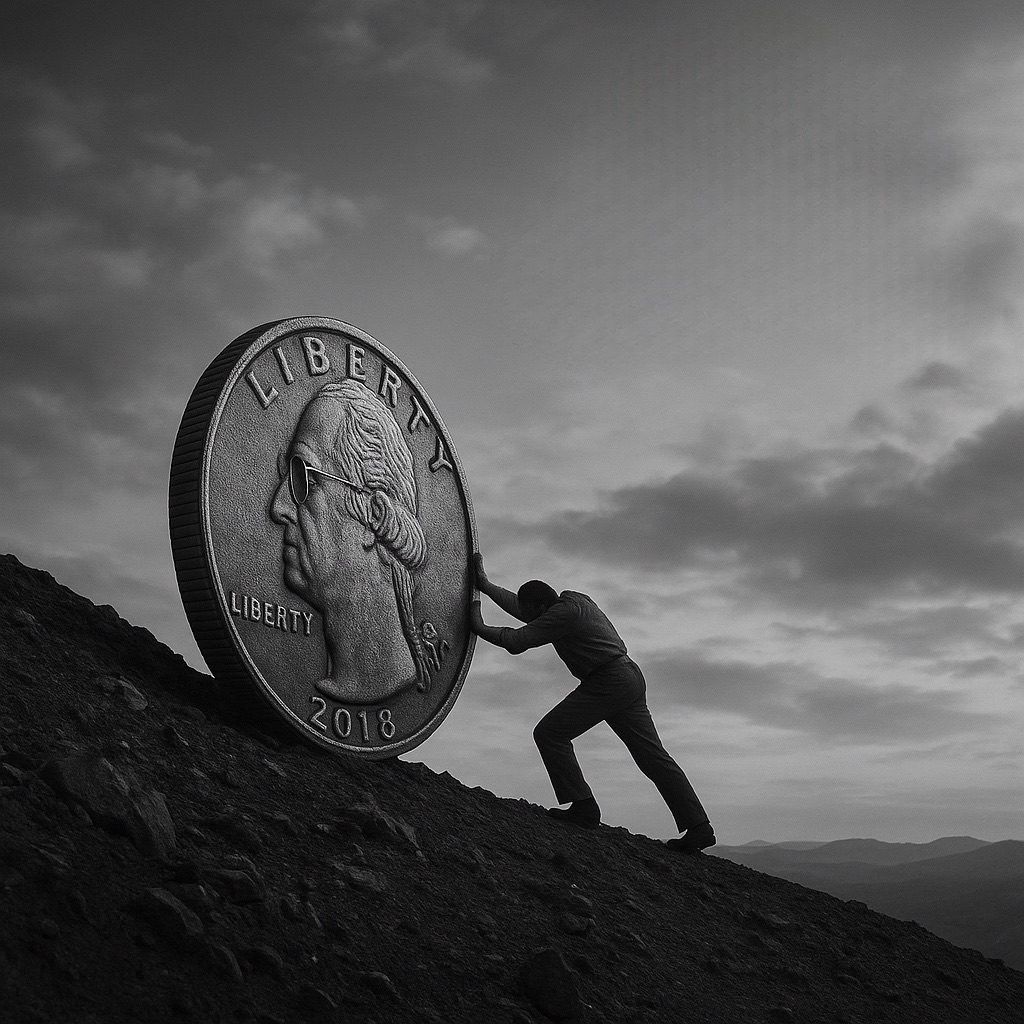
The illusion of wealth: how the rich spend money they don’t have
by Kai Ochsen
Welcome to the age of financial fiction
We live in an age where the richest people in history don’t actually own the money they spend. Billionaires acquire mansions, jets, yachts, even entire companies, not by dipping into a savings account, but by leveraging an illusion: the paper value of their company stock.
Their fortunes are little more than an abstract number, inflated by hype, algorithms, and investor belief. Meanwhile, those working 9-to-5 jobs earn real money, and are punished for it.
The phantom fortune
The so-called “net worth” of today’s elite is not liquid. It’s tied to company shares. Elon Musk, Jeff Bezos, Mark Zuckerberg, their wealth is mostly locked in stock. It’s not spendable cash, and it’s definitely not taxed as income.
Instead, they borrow against their shares. Banks, happy to lend, treat their portfolios as collateral. Need a $50 million mansion? No problem. The shares are the ticket. No taxable income, no messy salary, no IRS.
This isn’t personal wealth. It’s a form of scorekeeping. A game. The irony? The higher the valuation of their companies (often inflated by speculation), the more "money" they can borrow, without ever realizing actual income.
The $1 salary trick
To complete the illusion, many ultra-wealthy CEOs set their salary to $1 per year. Not for humility. Not for optics. For tax reasons.
By claiming no real income, they dodge income tax entirely, while receiving millions in stock options, equity bonuses, and deferred compensation. These are taxed differently, often at far lower rates, and sometimes not at all until sold (which they rarely do).
On paper, they’re “barely paid.” In practice, they’re enriching themselves in ways regular workers can’t access or even comprehend.
Foundations as the legalized laundromat
Then comes the philanthropy. Foundations and charities are set up not just to "do good", but to shield wealth.
When billionaires move funds into these private foundations, they receive huge tax deductions. The money isn’t really gone, they still control how it's used, who is employed, what gets funded, and where the investments go.
It's a tax-exempt piggy bank, dressed up in moral language. A form of legacy laundering. They get social praise, political influence, and a tax break, all in one.
The real money belongs to the poor
While the rich play with valuations and equity, the working class is paid in actual currency. They earn wages, pay full tax, buy necessities, and save, if they're lucky.
They can't borrow against stock. They can't write off grocery bills. They can't "donate" to themselves. And if they default, the bank doesn’t offer creative restructuring, it takes their home.
In this economy, being paid with real money is a liability.
Zeno’s Paradox for the working class
In theory, anyone can become wealthy. In practice, every step toward that goal is undermined by structural delay.
Zeno's Paradox said motion is an illusion, because each step forward is divided into smaller and smaller parts, never truly reaching the destination. Our economy follows the same logic: no matter how hard people work, wealth moves just out of reach.
Inflation, rising costs, unstable jobs, and systemic gatekeeping mean that “catching up” is not just hard, it’s mathematically rigged.
A game you’re not allowed to win
This isn’t capitalism. It’s a rigged casino. The rich don't earn their wealth, they engineer it. They bend laws, rewrite regulations, and turn accounting into alchemy. They don’t deal in cash. They deal in perception.
And the biggest illusion of all? That any of this is sustainable.